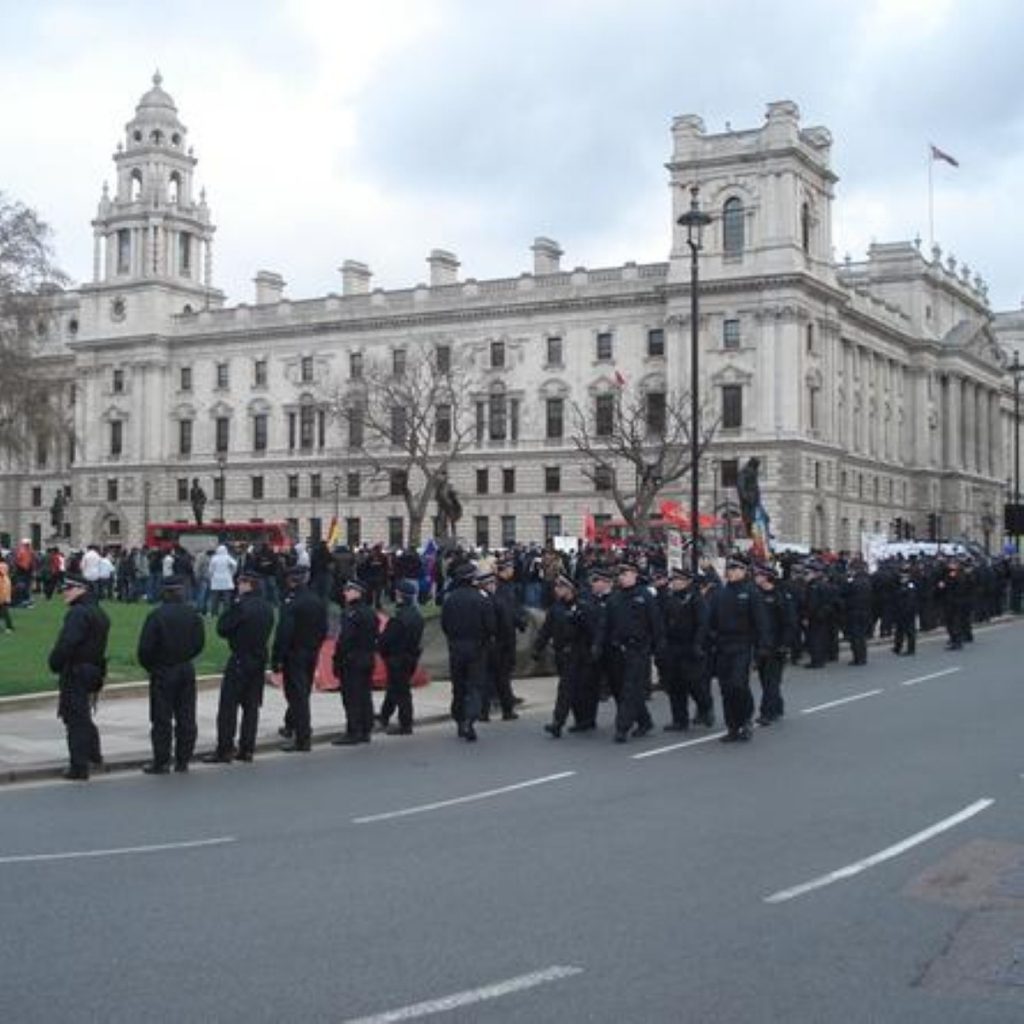Parliament Square set for latest turf war
By Liz Stephens and Alex Stevenson
Parliament Square could be the subject of a clash between the Labour government and Tory-run City Hall, MPs have warned.
A report by parliament’s joint committee on human rights on the policing of G20 protests warns the Greater London Authority (GLA) may consider “creating new byelaws to manage protest” which could “conflict with the government’s preferred approach”.
The danger follows the government’s decision to repeal provisions of the Serious Organised Crime and Police Act 2005 (SOCPA) relating to protest around parliament in the new constitutional reform and governance bill.


The SOCPA provisions, which have long been a source of much anger from protestors, were effectively rendered redundant by the Tamil protesters who occupied Parliament Square last year.
Now they are about to be withdrawn their default replacement could pose even greater threats to the right to protest outside parliament than previously thought.
The majority of Parliament Square is the responsibility of the Greater London Authority. Its current byelaws will soon be in conflict with the government’s proposed new laws.
In response to the committee, the government has said it is committed to ensuring there would be a coordinated approach to the policing of protests in Parliament square.
However, while the government have now agreed that “the ability of parliament to exercise its democratic functions” was the “only possible grounds” for different public order provisions to apply in the square compared to the rest of the country, the GLA’s byelaws remain restrictive.
The byelaws state that written permission is needed by the mayor or representatives of the mayor to use banners, placards or any sound amplification device (such as a megaphone or loudspeaker).
Written permission is also required for the making of speeches or public addresses, and the organisation or taking part in any “assembly” in Parliament Square.
According to the committee, the government has agreed to abolish the need for legal requirements for protests around parliament to be notified in advance to the police.
The government cited the Tamil protest as evidence of how “a compulsory prior notification scheme is impractical when communities feel very strongly about an issue and want to make their views known quickly”.
Three years ago, comedian Mark Thomas organised “mass lone demonstrations” in protest at SOCPA.
Protesters had to apply to the police six days in advance for the right to protest alone. So while the protesters were present at the same time they could not be said to form an ‘assembly’. The police were inundated with requests from protesters.
If the government repeals SOCPA, the GLA can presumably expect a flood of written requests of its own.









